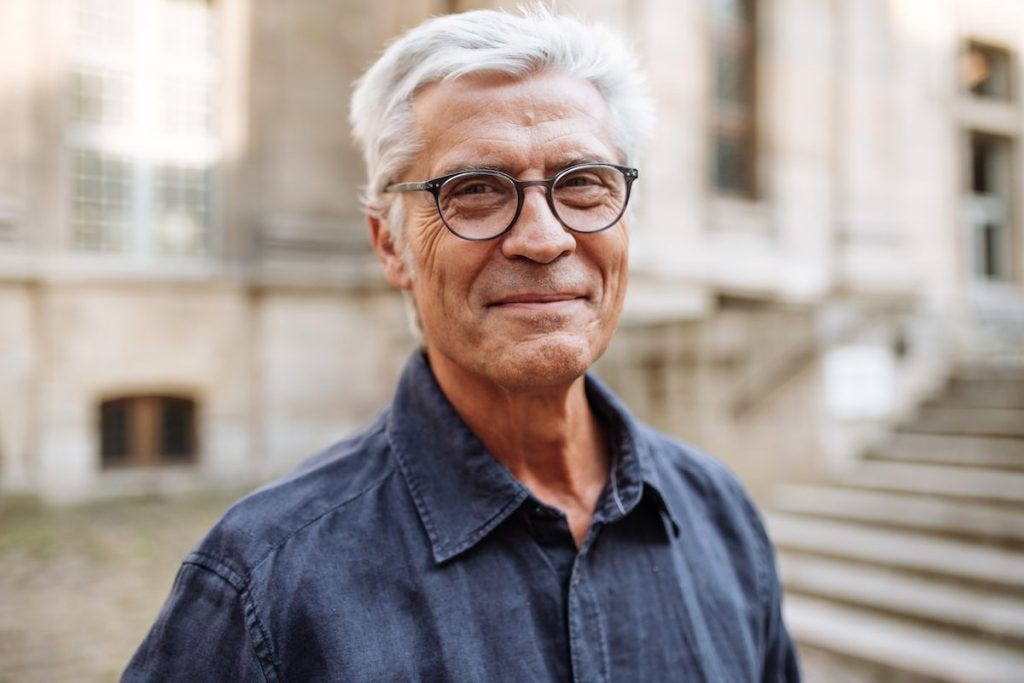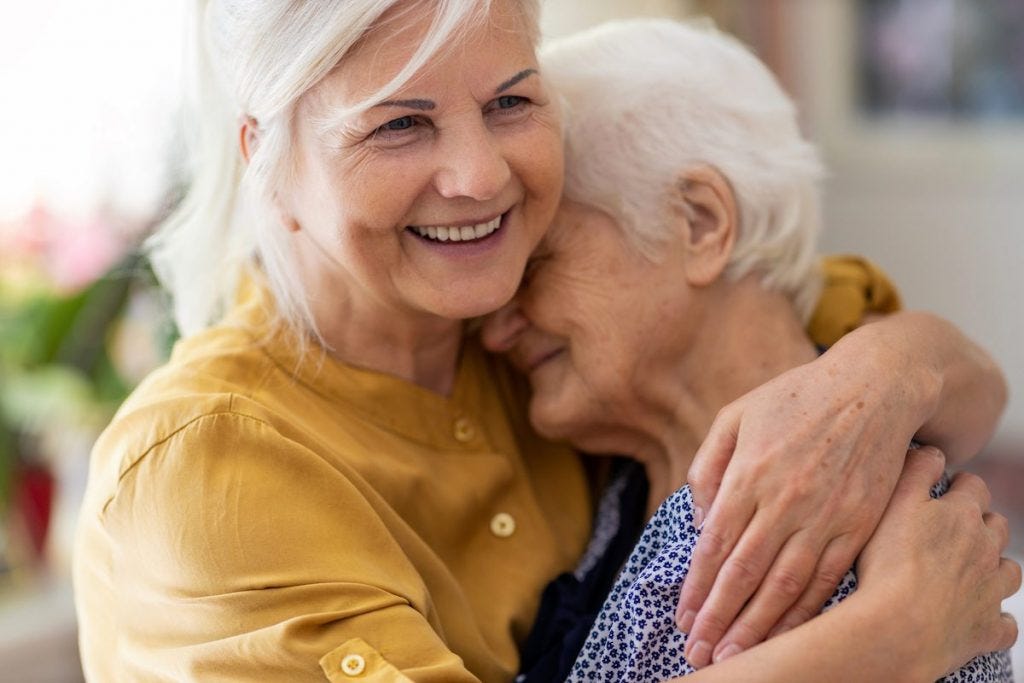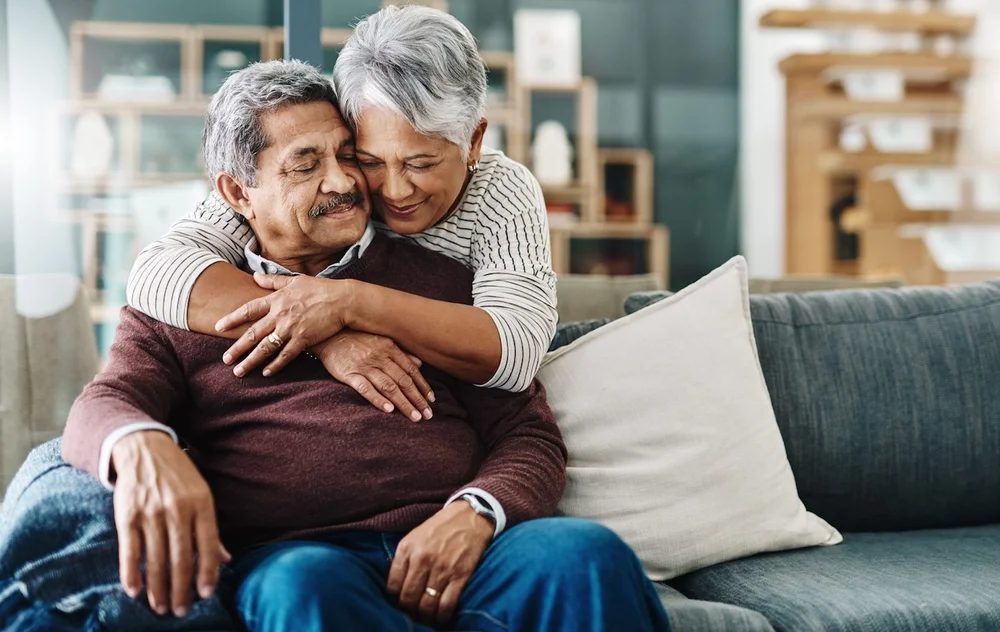How Aging Is Different For Men & Women
It’s no secret that our culture is uncomfortable with aging.
In the U.S., we go to great lengths to make the signs of aging disappear, which is reflected in our $60 billion anti-aging cosmetics and personal care industry, and our $67 billion cosmetic surgery market.
Despite these efforts, our bodies still age. And they age differently for men and women.
It seems that aging gracefully might entail accepting the inevitable physiological changes that men and women experience as part of the natural cycle of life and taking measures to be as healthy as possible.
Let’s take a closer look!
Aging in Men vs. Women

While science is discovering a host of differences in men and women as they age, here are five major ones you should know.
1. Longevity
When it comes to longevity, women outlive men by roughly five years.
The most recent data from the U.S. Centers for Disease Control and Prevention shows life expectancy at birth was 75.1 years for males and 80.5 years for females.
There are loads of theories as to the cause of this life expectancy gap. Some are biological and some are social factors and behaviors, which are more in our control (such as risky behavior, aggression, smoking, alcohol and drug abuse, poor diet, lack of exercise, little emotional support, and a failure to get routine medical care, to name a few).
The takeaway? To live longer and healthier, men really need to make health a priority.
2. Sex Hormones
Men and women have different hormonal shifts as they grow older.
Women experience the most dramatic hormonal shift with menopause. At around age 50, women stop menstruating and their ovaries stop producing the hormone estrogen. As a result, women can experience a number of symptoms, including hot flashes, fatigue, vaginal dryness, and lower libido.
Low levels of estrogen and other changes related to aging (such as weight gain) can raise a woman’s risk of heart health issues, cerebrovascular problems, and bone mineral density loss. New research shows that low estrogen can affect cognitive decline later in life, too.
For men, aging brings on a gradual decline in testosterone levels that happens slowly over years. Experts estimate the decline to be about 1 percent each year after age 30. This doesn’t bring on as sudden a change for men as it does for women, but lowered testosterone could lead to poor erectile function, reduced libido, and even changes in sleep patterns.
If men or women are experiencing symptoms associated with low estrogen or testosterone, they can get their levels checked with a simple blood test. Discuss natural ways to boost levels if they’re low with your healthcare provider or discuss the benefits and risks of hormone replacement therapy.
3. Heart Health
Men and women experience age-related heart health issues differently.
Studies show that estrogen provides some protection for women from degenerative heart health issues until after menopause, when estrogen levels decline.
That may be why, on average, men experience heart health issues around age 66 and women at age 70. Yet, a serious heart health event is the number one cause of death for both sexes.
Symptoms differ during and prior to a heart health event for men and women. Men often describe acute chest pain and some women experience something similar, but they’re more likely to have different, subtler symptoms for three or four weeks prior to the event, including new or dramatic fatigue, shortness of breath or sweating, or pain in the neck, back, or jaw.
A heart-healthy diet, regular exercise, and eliminating risk factors such as smoking, excessive alcohol consumption, and unhealthy weight can reduce the chances of heart health issues for both sexes.

Even though women tend to care for their skin better than men, men have some biological differences that make their skin less susceptible to the signs of aging.
Testosterone helps to thicken their skin, roughly 25 percent thicker than women’s skin. Men also have the benefit of having more collagen in their skin, and they also typically sweat more, which provides moisture.
After menopause, women lose more collagen from hormonal changes. That rate increases for about five years, then slows back down.
On the other hand, men’s skin loses collagen gradually.
Still, with these differences, both men and women can enjoy healthy skin aging by eating a healthy diet rich in nutrient-rich beauty foods, getting adequate water intake, reducing stress, getting plenty of sleep, avoiding smoking, keeping alcohol consumption to a minimum, and wearing sunscreen.
5. Weight
Although both men and women lose muscle after age 30, they tend to gain weight in different ways.
Men often gain weight until about age 55, and then begin to lose weight later in life. This may be related to a drop in testosterone.
On the other hand, women usually gain weight until age 65, and then begin to lose weight.
Women tend to carry excess weight on their hips and thighs, while men add it to their waistlines. The belly fat in men increases their risk of serious heart health issue or a cerebrovascular event.
For both men and women, exercise habits and a proper diet can go a long way toward supporting healthy weight even with the hormonally driven difference in weight.
Age Gracefully
If we learn to work with our bodies as they change over time and take steps to maintain health now and in the future, both men and women might find aging a lot easier and enjoyable.
At BrainMD, we’re dedicated to providing the highest purity nutrients to improve your physical health and overall well-being. For more information about our full list of brain healthy supplements, please visit us at BrainMD.
- Here Are Some of the Best Tension Release Exercises to Help You Feel Your Best! - April 17, 2024
- Foodscaping: How to Grow Healthy Foods In Your Own Garden! - April 12, 2024
- Eat Your Fruits and Veggies (Don’t Drink Them) - March 29, 2024



